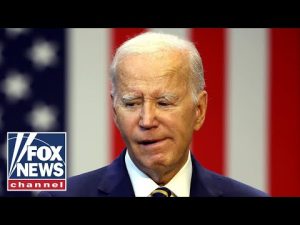Ah, the 1980s—a time of big hair, vibrant colors, and the ultimate rise of primetime showmanship in in the form of professional wrestling. This week, fans are mourning the loss of some beloved icons. While it’s true that the 1980s brought us a series of unforgettable matches and characters, none of them quite reached the legendary status of wrestling phenom Hulk Hogan, known to his legions as “The Holster.” With flair, charisma, and those iconic yellow tights, he became wrestling’s superhero, embodying the essence of American resilience for a generation glued to their screens.
You didn’t have to be a die-hard wrestling fan to know who Hulk Hogan was. He, along with the likes of Andre the Giant, turned wrestling from backyard pretend games into must-see TV spectacles. In an era where the sport still tiptoed on the edge of its eventual billion-dollar legitimacy, Hogan managed to body slam his way into the annals of pop culture history. In a move that would have been laughably impossible to predict, WWE joined forces with MTV, broadcasting Hogan’s greatness into the living rooms of kids everywhere. For many, the echo of a young fan’s cries of joy when he first escaped the Iron Sheik’s camel clutch is as vivid today as it was over three decades ago.
So, what made Hulk Hogan so special? Simple: He was America. Whether he was freeing himself from a “sleeper hold” or rallying the crowd with his famous cupped-ear gesture, Hogan revitalized the American spirit on television every night. With Hulk, every battle in the ring was about triumph, underdog resilience, and yes, taking down the iron-fisted foreigners. In the eyes of his young viewers, he oscillated between a gladiator of old and a modern-day Captain America, clad in spandex, not shielded armor.
If imitation is the sincerest form of flattery, then Hulk was hailed daily by countless children play-fighting in their backyards. Dreaming of glory in homemade rings, they emulated his every move, right down to the leg-drop finish. Television might have shifted towards ambiguity and moral relativism today, but back then it was clear: Hulk Hogan represented all that was good and true, and he was as sure to win as the sun was to rise.
Ironically, in today’s topsy-turvy world, the clash of characters might take on an ironic twist. The lovable heel of the past, the Iron Sheik, might even have a fighting chance at winning today’s popularity contests in some circles without a world-class showman like Hogan to counteract the madness. It seems the curtain never does fall permanently on the drama, whether in politics or in the ring. But at least once upon a time, Hulk Hogan epitomized the dream that anyone could stand firm, wiggle out of life’s most arduous holds, and emerge victorious, all with a roar of the crowd and the strains of “Real American” at their back.







